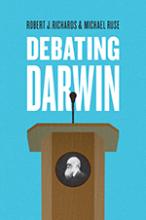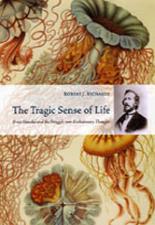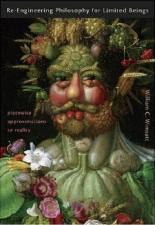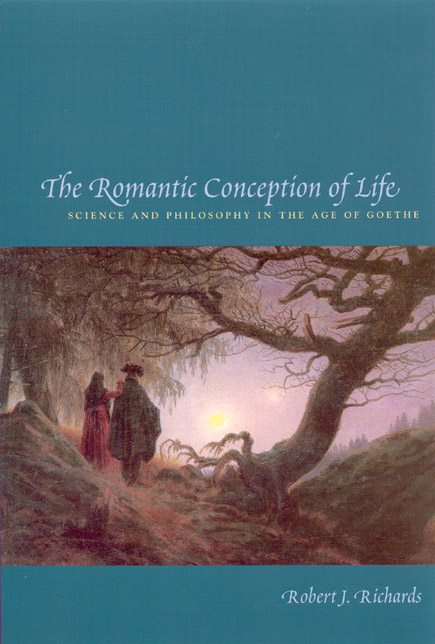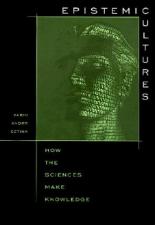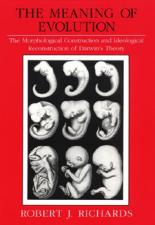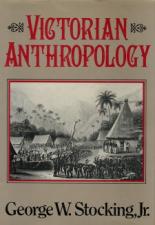Books
Debating Darwin
by Robert J. Richards and Michael Ruse
Charles Darwin is easily the most famous scientist of the modern age, and his theory of evolution is constantly referenced in many contexts by scientists and nonscientists alike. And yet, despite how frequently his ideas are evoked, there remains a surprising amount we don’t know about the father of modern evolutionary thinking, his intellectual roots, and the science he produced. Debating Darwin seeks to change that, bringing together two leading Darwin scholars—Robert J. Richards and Michael Ruse—to engage in a spirited and insightful dialogue, offering their interpretations of Darwin and their critiques of each other’s thinking.
Examining key disagreements about Darwin that continue to confound even committed Darwinists, Richards and Ruse offer divergent views on the origins and nature of Darwin and his ideas. Ruse argues that Darwin was quintessentially British and that the roots of his thought can be traced back to the eighteenth century, particularly to the Industrial Revolution and thinkers such as Adam Smith and Thomas Robert Malthus. Ruse argues that when these influences are appreciated, we can see how Darwin’s work in biology is an extension of their theories. In contrast, Richards presents Darwin as a more cosmopolitan, self-educated man, influenced as much by French and particularly German thinkers. Above all, argues Richards, it was Alexander von Humboldt who both inspired Darwin and gave him the conceptual tools that he needed to find and formulate his evolutionary hypotheses. Together, the authors show how the reverberations of the contrasting views on Darwin’s influences can be felt in theories about the nature of natural selection, the role of metaphor in science, and the place of God in Darwin’s thought.
Revealing how much there still is to investigate and interrogate about Darwin’s ideas, Debating Darwin contributes to our understanding of evolution itself. The book concludes with a jointly authored chapter that brings this debate into the present, focusing on human evolution, consciousness, religion, and morality. This will be powerful, essential reading for anyone seeking a comprehensive understanding of modern-day evolutionary science and philosophy.
Green Victorians: The Simple Life in John Ruskin's Lake District
by Vicky Albritton & Fredrik Albritton Jonsson
From Henry David Thoreau to Bill McKibben, critics and philosophers have long sought to demonstrate how a sufficient life—one without constant, environmentally damaging growth—might still be rich and satisfying. Yet one crucial episode in the history of sufficiency has been largely forgotten. Green Victorians tells the story of a circle of men and women in the English Lake District who attempted to create a new kind of economy, turning their backs on Victorian consumer society in order to live a life dependent not on material abundance and social prestige but on artful simplicity and the bonds of community.
At the center of their social experiment was the charismatic art critic and political economist John Ruskin. Albritton and Albritton Jonsson show how Ruskin’s followers turned his theory into practice in a series of ambitious local projects ranging from hand spinning and woodworking to gardening, archaeology, and pedagogy. This is a lively yet unsettling story, for there was a dark side to Ruskin’s community as well—racist thinking, paternalism, and technophobia. Richly illustrated, Green Victorians breaks new ground, connecting the ideas and practices of Ruskin’s utopian community with the problems of ethical consumption then and now.
The Theater of Operations: National Security Affect from the Cold War to the War on Terror
by Joseph Masco
How did the most powerful nation on earth come to embrace terror as the organizing principle of its security policy? In The Theater of Operations, Joseph Masco locates the origins of the present-day U.S. counterterrorism apparatus in the Cold War's "balance of terror." He shows how, after the attacks of 9/11, the U.S. global War on Terror mobilized a wide range of affective, conceptual, and institutional resources established during the Cold War to enable a new planetary theater of operations. Tracing how specific aspects of emotional management, existential danger, state secrecy, and threat awareness have evolved as core aspects of the American social contract, Masco draws on archival, media, and ethnographic resources to offer a new portrait of American national security culture. Undemocratic and unrelenting, this counterterror state prioritizes speculative practices over facts, and ignores everyday forms of violence across climate, capital, and health in an unprecedented effort to anticipate and eliminate terror threats—real, imagined, and emergent.
Was Hitler a Darwinian? Disputed Questions in the History of Evolutionary Theory
by Robert J. Richards
In this collection of essays, Robert J. Richards argues that this orthodox view is wrongheaded. A close historical examination reveals that Darwin, in more traditional fashion, constructed nature with a moral spine and provided it with a goal: man as a moral creature. The book takes up many other topics—including the character of Darwin’s chief principles of natural selection and divergence, his dispute with Alfred Russel Wallace over man’s big brain, the role of language in human development, his relationship to Herbert Spencer, how much his views had in common with Haeckel’s, and the general problem of progress in evolution. Moreover, Richards takes a forceful stand on the timely issue of whether Darwin is to blame for Hitler’s atrocities. Was Hitler a Darwinian? is intellectual history at its boldest.
Memory: Fragments of a Modern History
by Alison Winter
Tracing the cultural and scientific history of our understanding of memory, Winter explores early metaphors that likened memory to a filing cabinet; later, she shows, that cabinet was replaced by the image of a reel of film, ever available for playback. That model, too, was eventually superseded, replaced by the current understanding of memory as the result of an extremely complicated, brain-wide web of cells and systems that together assemble our pasts.
Piracy: The Intellectual Property Wars From Gutenberg to Gates
by Adrian Johns
Since the rise of Napster and other file-sharing services in its wake, most of us have assumed that intellectual piracy is a product of the digital age and that it threatens creative expression as never before. The Motion Picture Association of America, for instance, claimed that in 2005 the film industry lost $2.3 billion in revenue to piracy online. But here Adrian Johns shows that piracy has a much longer and more vital history than we have realized—one that has been largely forgotten and is little understood.
The Tragic Sense of Life: Ernst Haeckel and the Struggle over Evolutionary Thought
by Robert J. Richards
Prior to the First World War, more people learned of evolutionary theory from the voluminous writings of Charles Darwin’s foremost champion in Germany, Ernst Haeckel (1834–1919), than from any other source, including the writings of Darwin himself. But, with detractors ranging from paleontologist Stephen Jay Gould to modern-day creationists and advocates of intelligent design, Haeckel is better known as a divisive figure than as a pioneering biologist. Robert J. Richards’s intellectual biography rehabilitates Haeckel, providing the most accurate measure of his science and art yet written, as well as a moving account of Haeckel’s eventful life.
Language Evolution: Contact, Competition and Change
by Salikoko S. Mufwene
This book examines the processes by which languages change, from the macroecological perspective of competition and natural selection. In a series of chapters, Salikoko Mufwene examines such themes as: natural selection in language, the actuation question and the invisible hand that drives evolution, multilingualism and language contact, language birth and language death, the emergence of Creoles and Pidgins, the varying impacts of colonization and globalization on language vitality.
Re–engineering Philosophy for Limited Beings
by William Wimsatt
This book offers a philosophy for error-prone humans trying to understand messy systems in the real world. Against eliminative reductionism, Wimsatt pits new perspectives to deal with emerging natural and social complexities. He argues that our philosophy should be rooted in heuristics and models that work in practice, not only in principle. He demonstrates how to do this with an analysis of the strengths, the limits, and a recalibration of our reductionistic and analytic methodologies. Our aims are changed and our philosophy is transfigured in the process.
The Nuclear Borderlands: The Manhattan Project in Post-Cold War New Mexico
by Joseph Masco
The Nuclear Borderlands explores the sociocultural fallout of twentieth-century America's premier technoscientific project--the atomic bomb. Joseph Masco offers the first anthropological study of the long-term consequences of the Manhattan Project for the people that live in and around Los Alamos, New Mexico, where the first atomic bomb, and the majority of weapons in the current U.S. nuclear arsenal, were designed. Masco examines how diverse groups--weapons scientists at Los Alamos National Laboratory, neighboring Pueblo Indian Nations and Nuevomexicano communities, and antinuclear activists--have engaged the U.S. nuclear weapons project in the post-Cold War period, mobilizing to debate and redefine what constitutes "national security."
In a pathbreaking ethnographic analysis, Masco argues that the U.S. focus on potential nuclear apocalypse during the Cold War obscured the broader effects of the nuclear complex on American society. The atomic bomb, he demonstrates, is not just the engine of American technoscientific modernity; it has produced a new cognitive orientation toward everyday life, provoking cross-cultural experiences of what Masco calls a "nuclear uncanny." Revealing how the bomb has reconfigured concepts of time, nature, race, and citizenship, the book provides new theoretical perspectives on the origin and logic of U.S. national security culture. The Nuclear Borderlands ultimately assesses the efforts of the nuclear security state to reinvent itself in a post-Cold War world, and in so doing exposes the nuclear logic supporting the twenty-first-century U.S. war on terrorism.
The Post–Revolutionary Self: Politics and Psyche in France, 1750-1850
by Jan Goldstein
Beginning with a fresh consideration of the place of sensationalism in the Old Regime and the French Revolution, Jan Goldstein traces a post-Revolutionary politics of selfhood that reserved the Cousinian moi for the educated elite, outraged Catholics and consigned socially marginal groups to the ministrations of phrenology. Situating the Cousinian moi between the fragmented selves of eighteenth-century sensationalism and twentieth-century Freudianism, Goldstein suggests that the resolutely unitary self of the nineteenth century was only an interlude tailored to the needs of the post-Revolutionary bourgeois order.
The Romantic Conception of Life: Science and Philosophy in the Age of Goethe
by Robert J. Richards
"All art should become science and all science art; poetry and philosophy should be made one." Friedrich Schlegel's words perfectly capture the project of the German Romantics, who believed that the aesthetic approaches of art and literature could reveal patterns and meaning in nature that couldn't be uncovered through rationalistic philosophy and science alone. In this wide-ranging work, Robert J. Richards shows how the Romantic conception of the world influenced (and was influenced by) both the lives of the people who held it and the development of nineteenth-century science.
Integrating Romantic literature, science, and philosophy with an intimate knowledge of the individuals involved—from Goethe and the brothers Schlegel to Humboldt and Friedrich and Caroline Schelling—Richards demonstrates how their tempestuous lives shaped their ideas as profoundly as their intellectual and cultural heritage. He focuses especially on how Romantic concepts of the self, as well as aesthetic and moral considerations—all tempered by personal relationships—altered scientific representations of nature. Although historians have long considered Romanticism at best a minor tributary to scientific thought, Richards moves it to the center of the main currents of nineteenth-century biology, culminating in the conception of nature that underlies Darwin's evolutionary theory.
Uniting the personal and poetic aspects of philosophy and science in a way that the German Romantics themselves would have honored, The Romantic Conception of Life alters how we look at Romanticism and nineteenth-century biology.
The Emergence of Sexuality
by Arnold Davidson
In a book that moves between philosophy and history, and with lasting significance for both, Arnold Davidson elaborates a powerful new method for considering the history of concepts and the nature of scientific knowledge, a method he calls “historical epistemology.” He applies this method to the history of sexuality, with important consequences for our understanding of desire, abnormality, and sexuality itself.
Epistemic Cultures: How the Sciences Make Knowledge
by Karin Knorr Cetina
How does science create knowledge? Epistemic cultures, shaped by affinity, necessity, and historical coincidence, determine how we know what we know. In this book, Karin Knorr Cetina compares two of the most important and intriguing epistemic cultures of our day, those in high energy physics and molecular biology. Her work highlights the diversity of these cultures of knowing and, in its depiction of their differences–in the meaning of the empirical, the enactment of object relations, and the fashioning of social relations–challenges the accepted view of a unified science.
Statistics on the Table
by Stephen Stigler
This lively collection of essays examines in witty detail the history of some of the concepts involved in bringing statistical argument “to the table,” and some of the pitfalls that have been encountered. The topics range from seventeenth-century medicine and the circulation of blood, to the cause of the Great Depression and the effect of the California gold discoveries of 1848 upon price levels, to the determinations of the shape of the Earth and the speed of light, to the meter of Virgil’s poetry and the prediction of the Second Coming of Christ. The title essay tells how the statistician Karl Pearson came to issue the challenge to put “statistics on the table” to the economists Marshall, Keynes, and Pigou in 1911.
The Nature of the Book
by Adrian Johns
In The Nature of the Book, a tour de force of cultural history, Adrian Johns constructs an entirely original and vivid picture of print culture and its many arenas—commercial, intellectual, political, and individual.
The Babylonian Theory of the Planets
by Noel Swerdlow
N. M. Swerdlow’s book is a study of the collection and observation of ominous celestial phenomena and of how intervals of time, locations by zodiacal sign, and cycles in which the phenomena recur were used to reduce them to purely arithmetical computation, thereby surmounting the greatest obstacle to observation, bad weather. The work marks a striking advance in our understanding of both the origin of scientific astronomy and the astrological divination through which the kingdoms of ancient Mesopotamia were governed.
Mesmerized: Powers of Mind in Victorian Britain
by Alison Winter
Across Victorian Britain, apparently reasonable people twisted into bizarre postures, called out in unknown languages, and placidly bore assaults that should have caused unbearable pain all while they were mesmerized. Alison Winter’s fascinating cultural history traces the history of mesmerism in Victorian society. Mesmerized is both a social history of the age and a lively exploration of the contested territory between science and pseudo-science.
After Tylor: British Social Anthropology, 1888-1951
by George W. Jr. Stocking
A sequel to Victorian Anthropology, Stocking’s widely acclaimed study of British anthropology and the Darwinian Revolution, After Tylor is the first comprehensive exploration of the intellectual transition that gave rise to modern British social anthropology.
The Meaning of Evolution: the Morphological Construction and Ideological Reconstruction of Darwin’s Theory
by Robert J. Richards
Did Darwin see evolution as progressive, directed toward producing ever more advanced forms of life? Most contemporary scholars say no. In this challenge to prevailing views, Robert J. Richards says yes–and argues that current perspectives on Darwin and his theory are both ideologically motivated and scientifically unsound.
The Ethnographer’s Magic
by George W. Jr. Stocking
For this collection, Stocking has written comments on each of the eight essays included, as well as an introduction providing autobiographical and historiographical context and an afterword reconsidering major themes of the essays in relation to the recent past and present situation of academic anthropology.
The History of Statistics
by Stephen Stigler
This magnificent book is the first comprehensive history of statistics from its beginnings around 1700 to its emergence as a distinct and mature discipline around 1900. Stephen M. Stigler shows how statistics arose from the interplay of mathematical concepts and the needs of several applied sciences including astronomy, geodesy, experimental psychology, genetics, and sociology. He addresses many intriguing questions: How did scientists learn to combine measurements made under different conditions? And how were they led to use probability theory to measure the accuracy of the result?
Darwin and the Emergence of Evolutionary Theories of Mind and Behavior
by Robert J. Richards
With insight and wit, Robert J. Richards focuses on the development of evolutionary theories of mind and behavior from their first distinct appearance in the eighteenth century to their controversial state today. Particularly important in the nineteenth century were Charles Darwin’s ideas about instinct, reason, and morality, which Richards considers against the background of Darwin’s personality, training, scientific and cultural concerns, and intellectual community. Many critics have argued that the Darwinian revolution stripped nature of moral purpose and ethically neutered the human animal. Richards contends, however, that Darwin, Herbert Spencer, and their disciples attempted to reanimate moral life, believing that the evolutionary process gave heart to unselfish, altruistic behavior.
Console and Classify
by Jan Goldstein
Since its publication in 1989, Console and Classify has become a classic work in the history of science and in French intellectual history. Now with a new afterword, this much-cited and much-discussed book gives readers the chance to revisit the rise of psychiatry in nineteenth-century France, the shape it took and why, and its importance both then and in contemporary society.
Victorian Anthropology
by George W. Jr. Stocking
Race, Culture, and Evolution: Essays in the History of Anthropology
by George W. Jr. Stocking
“We have, at long last, a real historian with real historical skills and no intra-professional ax to grind. . . . All these pieces show the virtues one finds missing in . . . nearly all of anthropological history work but [Stocking’s]: extensive and critical use of archival sources, tracing of real rather than merely plausible intellectual connections, and contextualization of ideas and movements in terms of broader social and cultural currents. Stocking writes very clearly; attacks important topics—race and evolution, the influence of scientism, the interaction between anthropology and other disciplines; and is methodologically very sophisticated.”—Clifford Geertz, The Institute for Advanced Study, Princeton
 THE UNIVERSITY OF CHICAGO
THE UNIVERSITY OF CHICAGO


